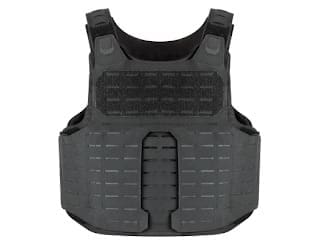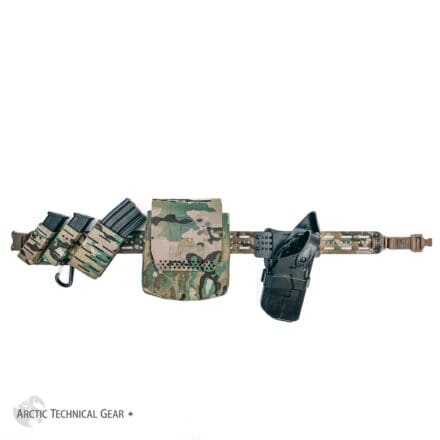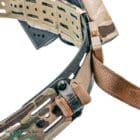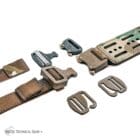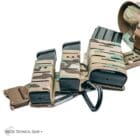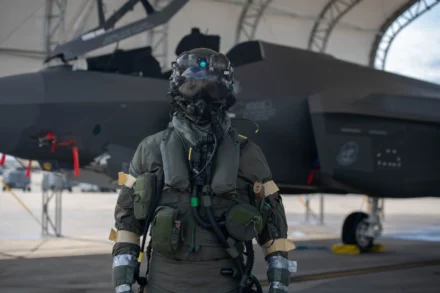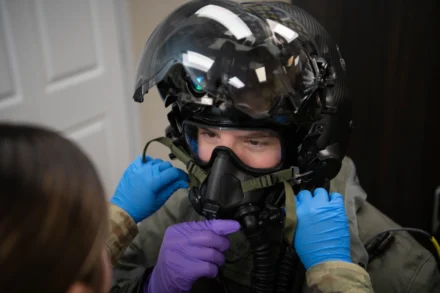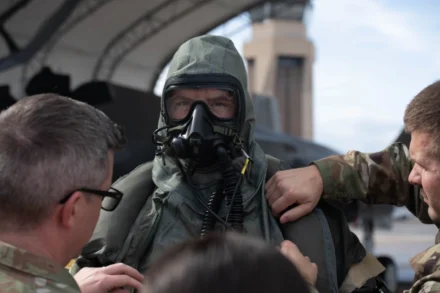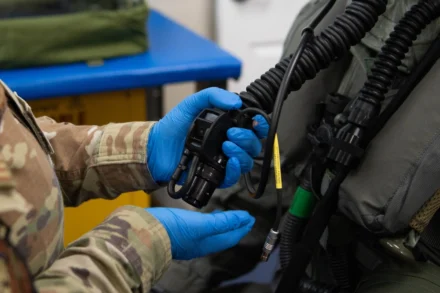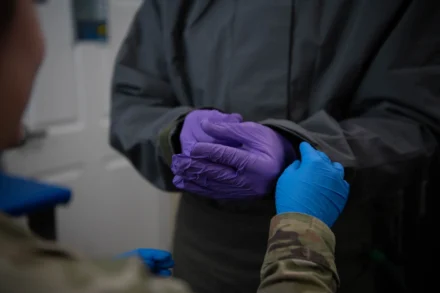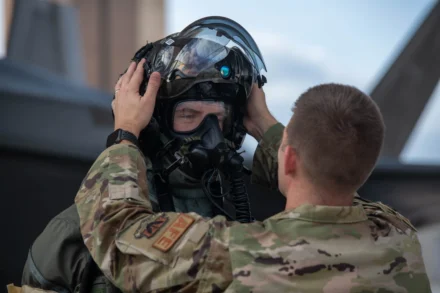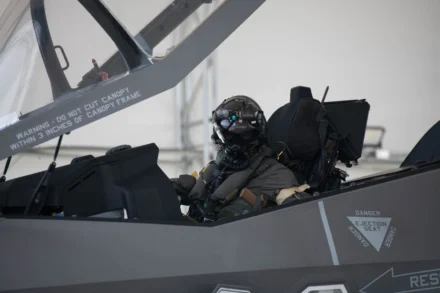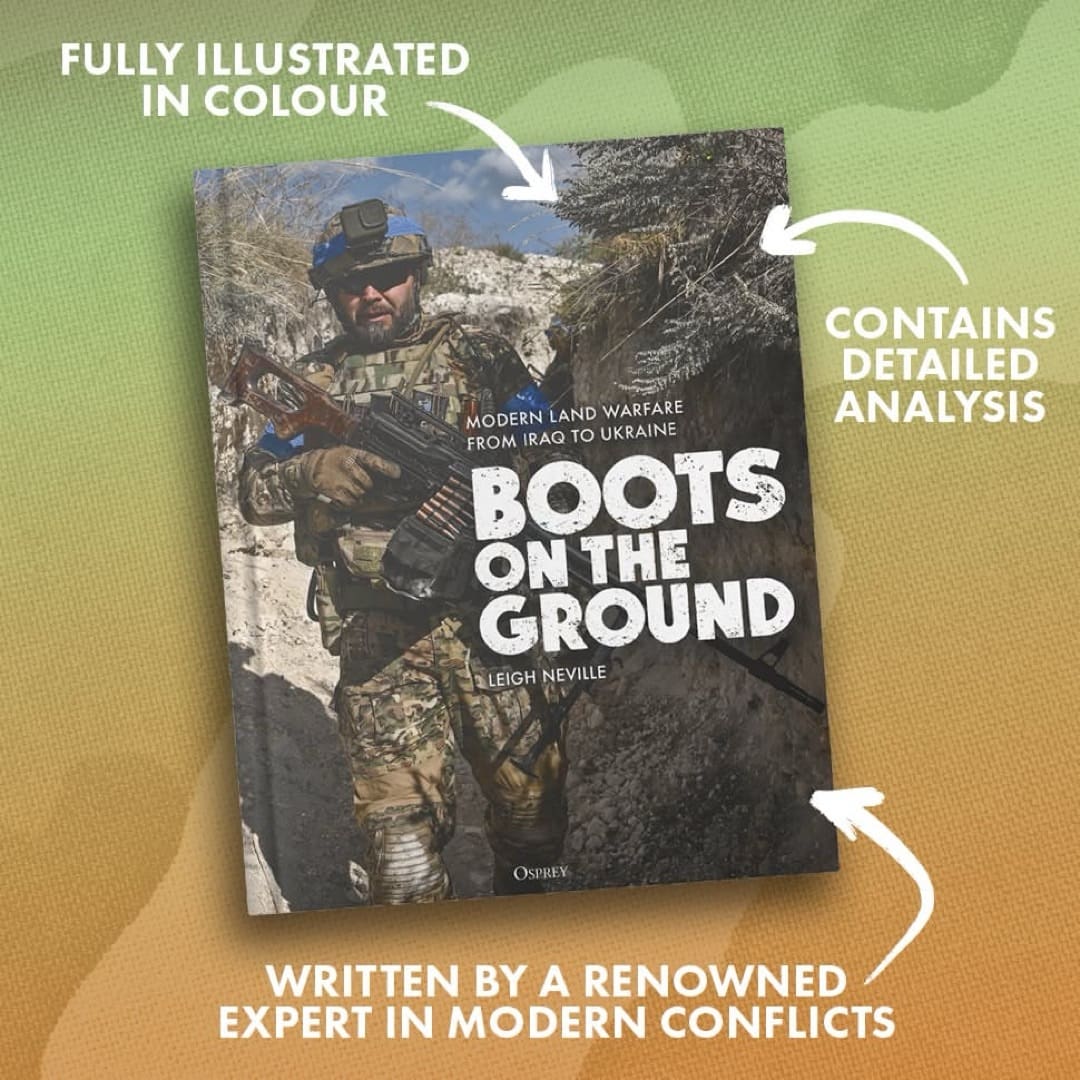JOINT BASE LANGLEY-EUSTIS, Va. — Next year, the U.S. Army Mad Scientist Initiative will continue in their efforts to explore the operational environment and collaborate and form partnerships with government and industry organizations and academic universities. This was recently carried out during their in-person, unclassified conference, “Game On! Wargaming and the Operational Environment,” in partnership with the Georgetown University Wargaming Society last month and will be a focus in 2025.
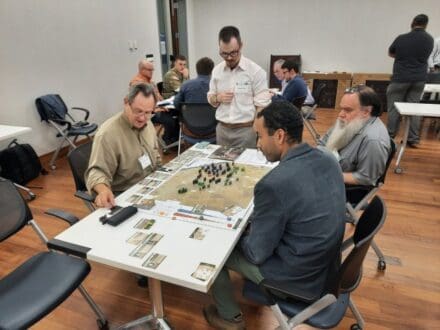
More than 150 wargame experts across the military, academic, commercial and hobbyist communities attended the conference, which endeavored to explore trends in wargaming. Topics included how wargames can address unconventional and neglected aspects of the operational environment, how wargaming can provide experiential learning for professional military education and how technology is enhancing wargaming.
Lee Grubbs, Mad Scientist director, opened the conference by highlighting the benefits of wargaming to maintain a trained and ready force at every echelon.
“[Wargaming] is a method of learning that the Army should consider driving down into all kinds of different learning domains,” he stated. “We decided to hold this conference to start the drumbeat of how we can drive all different types of gaming, at all different types of clearance levels, against all different types of operational conditions across all Army learning domains.”
Ian Sullivan, TRADOC deputy chief of staff for intelligence, followed by emphasizing the significance of learning from various types of wargames and wargaming communities.
“I have been playing wargames since the fourth grade,” he shared. “Playing [wargames] as a kid I think prepared me to do the job that I do today in ways that I couldn’t imagine at the time. It gave me an understanding, even perhaps in a simple way, about some important ideas about warfare.”
One major focus of the conference was to gather a multitude of wargaming communities to share experiences and lessons learned. Connecting different communities that the Army might not normally get to engage with will also be a priority at the various events in 2025.
“We’re bringing together folks who do this for DOD, hobby wargamers and folks who design wargames, both for DOD and hobby wargames,” Sullivan shared. “This led to a great effort to get a crowdsourced look at wargaming.”
Sebastian Bae, senior game designer and research scientist for the Center for Naval Analyses and Adjunct Assistant Advisor with Georgetown University, also shared his thoughts on how the military could work in partnership with commercial and hobbyist gamers and games.
“This conference — this panel — is a reflection of a [wider] trend, in terms of the merger of hobby gaming and professional gaming, as much as the increased frequency in which we intersect, reinforce and support each other,” he described. “I’ve always been a proponent for in-the-box educational games to build an ecosystem of games, because I think that’s how you get the most hands and minds working at the problem.”
The two main conference themes included the evolution and integration of wargaming, and emerging technology enablers. Wargaming literacy helps achieve experiential learning, enabling practitioners to explore new concepts and promote understanding. Along with professional wargaming, hobbyist and commercial wargaming is increasingly addressing joint and interagency operations and is used in PME to build wargaming literacy throughout the force. Additionally, while the operational environment changes, new aspects of the OE must be integrated into wargaming, such as civilian harm mitigation and response, weather, and space and cyber capabilities or operations.
In 2025, the Mad Scientist Team is planning to hold more events just like this one to include a writing contest focused on the idea of great power competition and conflict to crowdsource ideas about how current conflicts are shaping how the Army may need to fight in 2034. Additionally, contributors can assess what role the U.S. can play in countering adversary influence in the global south, and how the U.S. can counter authoritarian collusion in the Arctic and China’s growing presence in the Antarctic.
The insights gleaned from this crowdsourcing event will feed directly into the next unclassified in-person conference in the fall of 2025 where the Mad Scientist team and subject matter experts will further explore topics with a leading research institution.
Check out the Mad Scientist Laboratory website for a complete review of conference highlights, discussions, and a full conference report to be published in early 2025.
Videos of each presentation and panel can be found at the Mad Scientist All Partners Access Network site.
By Raechel Melling, TRADOC G-2




